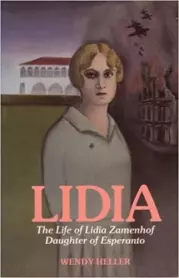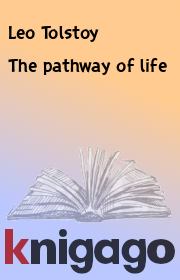Rosamund Bartlett - Chekhov : scenes from a life
Название: | Chekhov : scenes from a life | |
Автор: | Rosamund Bartlett | |
Жанр: | Старинная литература | |
Изадано в серии: | неизвестно | |
Издательство: | неизвестно | |
Год издания: | - | |
ISBN: | неизвестно | |
Отзывы: | Комментировать | |
Рейтинг: | ||
Поделись книгой с друзьями! Помощь сайту: донат на оплату сервера | ||
Краткое содержание книги "Chekhov : scenes from a life"
Аннотация к этой книге отсутствует.
Читаем онлайн "Chekhov : scenes from a life". [Страница - 5]
Chapter 1
PRE-HISTORY: A PORT ON THE AZOV SEA
I
Greeks and Scythians
Taganrog... a narrow isthmus, defended by an entrenchment of ancient origin, but enlarged and fortified in later ages. It is in all probability the Тафроу, or fosse mentioned by Herodotus; and Kremni Kpt||lvo the principal emporium of the Scythians in this quarter, must have been situated at or near Taganrog, where also some geographers place the village of Koroia (Kopoia к(Ь|1г|), specified by Ptolemy.
E. Henderson, Bibi cal Researches and Travels in Russia (1826)
Chekhov returned only occas onally in later life to Taganrog, the southern town on the Azov Sea where he had spent the first nineteen and a half years of his life. It was a long way away from Moscow, where he had made his home, and it took two full days to cover the 800-mne journey by train. But there was also a more prosaic reason as to why he did not go back more often: he had grown accustomed to certain creature comforts, and in ^xganrog there was no running water. With fears of encroaching illness, however, Chekhov sometimes succumbed to feelings of nostalgia for what he called the 'healthy air' of his home town in the 1890s, and these feelings intensified du;ing his last years when he was ill and very bored living in Yalta in the Crimea. Like Taganrog, the Crimean peninsula finally became part of the Russian Empire at the end of the eighteenth century but had always been home to many nationalities, predominant among them Tatars. They were descendants of the Tatar-Mongols who had invaded Russia in the thirteenth century and had later converted to Islam. To Chekhov, it seemed 1;ke he was living abroad m Yalta, and he frequently complained of homesickness for Russia proper. He couldhear the calls to prayer from the minaret near his house in Yalta, and it made him nostalgic for the sound of church bells being rung.1 His marked susceptibility to the d'stinctive sound of Russian bells had been acquired growing up in a very religious family in Taganrog, where chere were many churches. After he had been living in Yalta for two years, Chekhov informed a friend that as soon as Taganrog installed its own water supply, he would sell b1» house in Yalta and buy a 'lair' for himself right in the town centre, either on Petrovskaya, the main street, or on Grecheskaya - Greek Street - where all the smartest residences were located.2
Greek Street had acquired its name because of the illustrious role played in Taganrog's mercantile history by the traders from Greece who had been encouraged to settle in the town by Catherine the Great. Having etizej the southern seaboard from the Ottoman Empire in the 1770s, in order to gain access to the Mediterranean via the Black Sea, Catherine had her sights set on Constantinople becoming once again the centre of a newly re-established Greek Empire. Potemkin was duly dispatched from St Petersburg to establish a fleet, and to found ports with Greek-sounding names, such as Sevastopol and Feodosia; the old Turkish fortress of Hacijibey was named Odessa, after Odysseus. Large numbers of Greek subjects, meanwl le, were lured to southern Russia with offers of land, and advantageous tax breaks, which enabled them to develop a lucrative shippi ig trade dealing in the export of grain.3 At the time Chekhov was boin in 1860, Taganrog was still the most important commercial port n Russia, the fortunes of ts native traders in thrall to the Greek magnates who controlled the export of wheat out through the Sea of Azov and into the Black Sea and Meaiterranean. As a small-time trader, Chekhov's father was part of this food chain. His poor business sense meant that he was one of the first to suffer when "hganrog lost its viab>1:*y as a port in the 1870s, but he had ambition for his sons. Envious of one particular Greek who seemed to have the whoie of Taganrog under his thumb, Pavel Egorovich decided to enrol Anton and his eider brother N kolai in the preparatory class at the Greek school which was maint; xned by the expatriate community. He hoped that fluency in the language would be his sons' passport to wealth and prosperity, or at the very least a job as a clerk. Chekhov was seven years old.
The port at Taganrog
The school stood, high on the cliff overlooking the Azov Sea, in the parish grounds of the Greek Orthodox Church of St Constantine, and was located in the middle of Greek Street (where the wealthier members of its congregation all lived). Unl'ke the richly adorned church, whose icons were covered w ith miniature gold and suver sh'os brought by grateful sailors who had pray ed for the intercession of saints during storms at sea, the school was decidedly spartan. The rows of black desks in its one large room had to make do for all six classes, w th seventy-odd pupils ranging in age from six to twenty, and ruled over by a tall, bearded Cephalonian with red hair.4 When the school's unacceptably low standards and disciplinarian teaching methods were eventually uncovered, Nikolai and Anton were sent to join their elder brother, Alexander, at the Taganrog gymnasium. There they received a rigorous classical education, and Pavel Egorovich was forced to temper his naive idealization of all that Greece stood for. Chekhov later enjoyed sending it up obliquely in his popular one-act farce The Wedding (1889), in which the father of the bride, a retired collegiate registrar, asks increasingly ridiculous questions of his guest, Kharlampy Dymba, a Greek confect )ner with poor Russian, a character reputedly based on a resident of aganrog:
ZhigaloV: Have you got tigers in Greece?
DYMBA: We have.
zhigalov: And lions?
Dymba: Lions too. It's Russia which has nothing, but Greece has everything. I have
--">Книги схожие с «Chekhov : scenes from a life» по жанру, серии, автору или названию:
 |
| Wendy Heller - Lidia Life of Lidia Zamenhof, Daughter of Esperanto by Wendy Heller (z-lib.org) Жанр: Старинная литература Год издания: 1985 |
| Bob Blaisdell - Chekhov Becomes Chekhov Жанр: Старинная литература Год издания: 101 |




